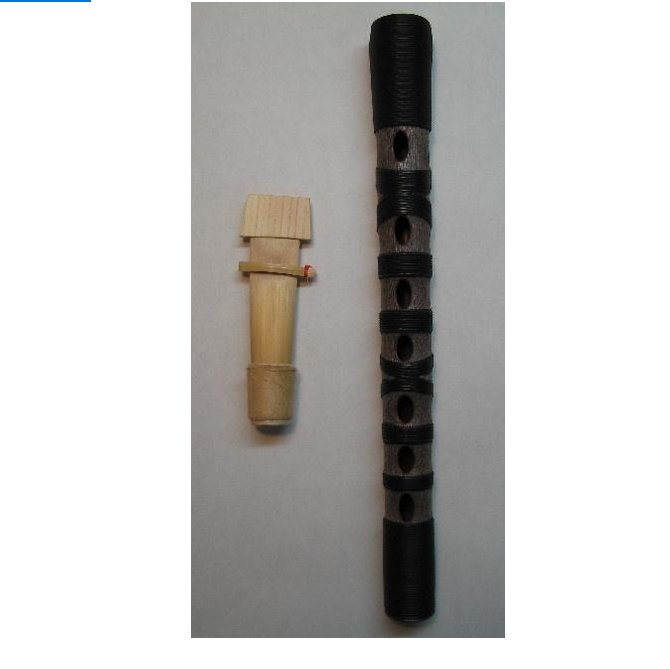fine grain overview
 小筚篥 (pinyin: xì bì lì) is called "grass splitting force" in Korean, and is commonly known as "pipe" in the folk. Originated from ancient 筚篥. In the Goryeo music of the nine and ten pieces of music in the Sui and Tang Dynasties, the Xiaoyu and Taopiyu have been used, which are the vertical double-reed gas-sounding instruments favored by the Korean people. Pronunciation loud and clear, high-pitched and vigorous tone. It is suitable for playing Korean-style music with a strong local flavor. Can be played solo, ensemble or accompaniment. It is popular in Yanbian Korean Autonomous Prefecture of Jilin Province and areas inhabited by Koreans.
小筚篥 (pinyin: xì bì lì) is called "grass splitting force" in Korean, and is commonly known as "pipe" in the folk. Originated from ancient 筚篥. In the Goryeo music of the nine and ten pieces of music in the Sui and Tang Dynasties, the Xiaoyu and Taopiyu have been used, which are the vertical double-reed gas-sounding instruments favored by the Korean people. Pronunciation loud and clear, high-pitched and vigorous tone. It is suitable for playing Korean-style music with a strong local flavor. Can be played solo, ensemble or accompaniment. It is popular in Yanbian Korean Autonomous Prefecture of Jilin Province and areas inhabited by Koreans.The Xiuji has a very long history, and its originator is the ancient Jiu. The thin scorpion is composed of two parts: a pipe whistle and a pipe body. The pipe whistle is 4 cm long and made of reeds with the crust removed; the pipe body is made of thin bamboo pipes, with a total length of 20 to 25 cm and a diameter of about 1 cm. There are 7 sound holes on the front and a tweeter hole on the back. The playing method of the xiuji is the same as that of most wind instruments. When performing, the player should stand up the pipe body, hold the whistle in his mouth, press the treble hole on the back and the 3 sound holes above the front with his left hand, and press the front side with his right hand. The other 4 sound holes below.
When playing, the pipe body is placed upright, the little finger, ring finger, middle finger and index finger of the right hand press one to four holes respectively, the ring finger, middle finger and index finger of the left hand press five to seven holes respectively, the thumb presses the back hole, and the mouth contains a pipe whistle. blow. Later, after the reformation of Wu Zhongfu, the master of the reformation of Chinese national wind music production, the pipe body was made of ebony with a sound similar to the bamboo pipe, and a plus key overtone hole was opened in the upper right corner of the original sixth hole, so that the sound range was expanded from d1 to g3, up to two half an octave. After his reformation, the multi-key fine scorpion has a wider range and can be transposed. In the Korean music, Xiuqi occupies an important position. He is best at playing Korean-style music with a strong local flavor. The solo pieces created include "Field Ditty", "Joy" and so on.
- Chinese name:fine grain
- origin:ancient 筚篥
- popular area:Korean inhabited areas, etc.
- alias:Grass splitting force, pipe
- pinyin:xì bì lì
overview of other similar instruments
- sanyanxiao overview
- Daguangxian overview
- Leiqin overview
- hahao overview
- yandundagu overview
- Han Xiaozheng overview
- Fang Xiang overview
- guanzi overview
- zhuqin (Dao Qin) overview
- zhuiqin overview
- bangzi overview
- three-stringed piano overview
- Gehu overview
- xiao overview
- xiaokonghou overview
- Konghou overview
- Sheng overview
- suona overview
- hulusi overview
- gushao overview
 渝公网安备 50010702504639号
渝公网安备 50010702504639号